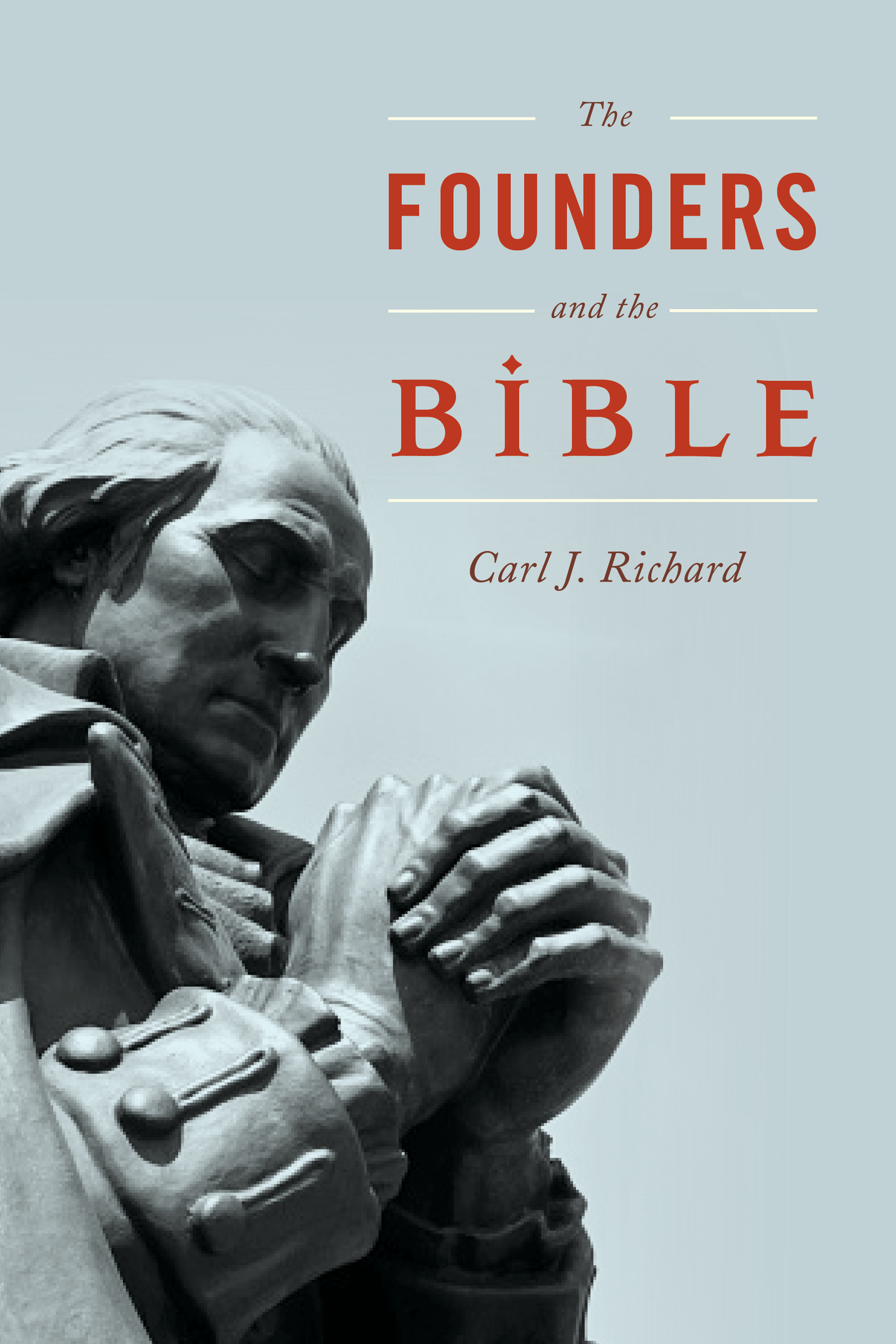The Founders and the Bible
The Founders and the Bible
Carl J. Richard
ROWMAN & LITTLEFIELD
Lanham Boulder New York London
Published by Rowman & Littlefield
A wholly owned subsidiary of The Rowman & Littlefield Publishing Group, Inc.
4501 Forbes Boulevard, Suite 200, Lanham, Maryland 20706
www.rowman.com
Unit A, Whitacre Mews, 26-34 Stannary Street, London SE11 4AB
Copyright 2016 by Rowman & Littlefield
All rights reserved. No part of this book may be reproduced in any form or by any electronic or mechanical means, including information storage and retrieval systems, without written permission from the publisher, except by a reviewer who may quote passages in a review.
British Library Cataloguing in Publication Information Available
Library of Congress Cataloging-in-Publication Data
Names: Richard, Carl J.
The Founders and the Bible / Carl J. Richard.
Description: Lanham, Maryland : Rowman & Littlefield, 2016. | Includes index.
Identifiers: LCCN 2015035506| ISBN 9781442254640 (cloth : alk. paper) | ISBN 9781442254657 (electronic)
Subjects: LCSH: Religion and politicsUnited StatesHistory18th century. | Religion and stateUnited StatesHistory18th century. | Founding Fathers of the United StatesReligious life. | United StatesReligionTo 1800. | United StatesPolitics and governmentPhilosophy.
Classification: LCC BL2525 .R53 2016 | DDC 200.973/09033dc23
LC record available at http://lccn.loc.gov/2015035506
 TM The paper used in this publication meets the minimum requirements of American National Standard for Information Sciences Permanence of Paper for Printed Library Materials, ANSI/NISO Z39.48-1992.
TM The paper used in this publication meets the minimum requirements of American National Standard for Information Sciences Permanence of Paper for Printed Library Materials, ANSI/NISO Z39.48-1992.
Printed in the United States of America
For Eran Shalev, the best of brothers
Preface
While American historians have used the term framers in a fairly consistent mannerto refer to the delegates of the Constitutional Conventionthey have not displayed the same consistency in their employment of the word founders. Often, they have focused on the six most famous leaders of the early American republic (the first four presidents, joined by Benjamin Franklin and Alexander Hamilton), implying that their views were typical of their class and generation. By contrast, this book is based on a study of approximately thirty prominent American political leaders of the late eighteenth and early nineteenth centuries, a number that is large enough to reveal both shared beliefs and theological differences among the political class of that era, yet small enough to avoid a voluminous and tedious descent into the idiosyncrasies of relatively minor figures. While my list of founders excludes loyalists, who opposed American independence and thus cannot be considered the founders of a new nation, it includes Anti-Federalists, who opposed the replacement of the nations first constitution, the Articles of Confederation, with the current one. To exclude the Anti-Federalists would be to neglect some of the most important leaders of the American Revolution, such as Samuel Adams and Patrick Henry, as well as the fifth president of the United States, James Monroe.
In addition to discussing the founders use of the Bible in their political rhetoric, this book also examines the theological and moral principles they derived from scripture. Focusing exclusively on the numerous scriptures the founders cited and the various biblical figures to whom they alluded while neglecting to examine the ideas that they derived from the Bibleideas that were both central to their worldviews and crucial to the rebellion they led and the political system they createdwould leave a stunted and distorted impression of biblical influence.
This book discusses the relationship between the biblical heritage and the classical and Whig traditions in the founders thought. The term classics refers to ancient Greek and Roman writings, both in their original languages and in translation. The Whigs referred to in this book were seventeenth-century British political philosophers, such as James Harrington, Algernon Sidney, and John Locke, who supported balanced government in opposition to absolute monarchy and who emphasized the natural rights of individuals.
The focus of this book on the influence of the Bible on late eighteenth- and early nineteenth-century American political leaders is not meant to suggest that the Bible did not have an equally powerful impact on other eras, nations, and classes. But these biblical influences have been addressed in numerous other books. Hence I refer to them only as they relate to the founders.
I would like to thank my dear friends and admired colleagues E. Christian Kopff, Dolores Egger Labbe, Glenn Moots, and Eran Shalev, who read this manuscript and provided valuable insights. Additionally, I would like to express gratitude to my editor, Jon Sisk, for his unfailing enthusiasm and encouragement. I would also like to thank the Guilbeau Charitable Trust at the University of Louisiana at Lafayette for its 2013 summer research award, which helped me to complete this work. As always, I would like to thank my precious wife, Debbie, my other half, for her unceasing prayers and support. As Proverbs 31:1012 states regarding the good wife, Her value is far above rubies. The heart of her husband safely trusts in her, so that he shall have great gain. She does him good and not harm all the days of her life.
Introduction
The American founders resist all efforts at appropriation for twenty-first-century agendas, whether political or religious, by their diversity of thought. As a case in point, a thorough study of the founders relationship with the Bible reveals that the more extreme claims of some modern Christians and secularists are equally invalid.
The claim that all of the founders were Christians holds true only if one adopts an uncommonly broad definition of Christianity. Four of the most important foundersThomas Paine, Thomas Jefferson, Benjamin Franklin, and John Adamsrejected crucial biblical doctrines concerning the origin and authority of scripture, the divinity of Jesus, and the means of salvation. The first three men also rejected biblical teaching regarding human nature. Three other crucial foundersGeorge Washington, the later James Madison, and James Monroewrote so little about the Bible, Jesus, and salvation that no honest historian can make confident assertions about them. This means that of the first five presidents of the United States, only one of them (James Madison) can be termed a biblically orthodox Christian with any degree of assurance, and then only during the early part of his life. Furthermore, even fairly orthodox founders sometimes possessed unorthodox opinions: Samuel Adamss postmillennialism, his belief that Jesus would return only after humans created the utopia of the Millennium, contradicted biblical teachings regarding both human nature and the end times, and Benjamin Rushs universalism, his belief that all souls would eventually arrive in heaven, conflicted with numerous scriptures that declare hell is eternal.
But the attempt to convert the founders into twenty-first-century secularists is even more problematic. Such efforts invariably focus obsessively on the four unorthodox founders, engage in bouts of wild speculation about the three mysterious ones, and steadfastly ignore the far larger number of fairly orthodox founders, a list that includes Samuel Adams, Fisher Ames, Elias Boudinot, Charles Carroll, John Dickinson, Christopher Gadsden, Alexander Hamilton, John Hancock, Patrick Henry, John Jay, Henry Laurens, William Livingston, the early James Madison, John Marshall, George Mason, Charles Pinckney, Edmund Randolph, Benjamin Rush, Roger Sherman, Charles Thomson, James Wilson, and John Witherspoon. Samuel Adams entered the Revolutionary movement, and became its most important organizer, as a result of the Great Awakeninga religious revival movement that inspired him with a passionate desire to establish an independent America as a Christian Sparta, a nation both deeply pious and profoundly republican. Patrick Henry, the Revolutions greatest orator, dressed in parsons gray, modeled the style of his powerful and influential speeches on the sermons of his favorite revivalist preacher, and filled those orations with biblical references. Benjamin Rush, a signer of both the Declaration of Independence and the Constitution, was so devout that he could scarcely write a sentence without referring to his faith; he even selected his wife based on her taste in sermons. Daily reading of the Book of Psalms gave this Philadelphia physician the courage to risk his life treating the victims of a yellow fever epidemic rather than flee the city, as some other doctors did. Charles Thomson, who served as the secretary of the Continental Congress throughout its entire existence, spent his retirement years composing a well-regarded translation of the Bible.
Next page
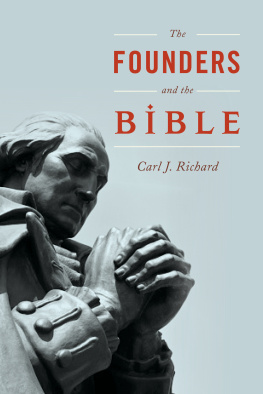
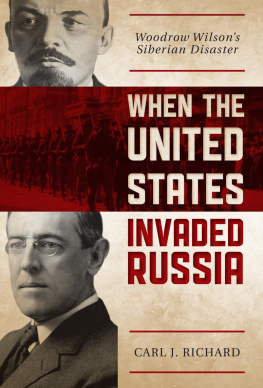
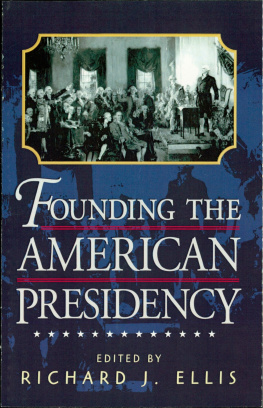

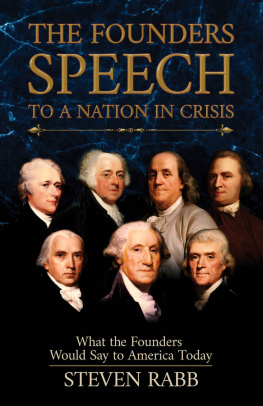
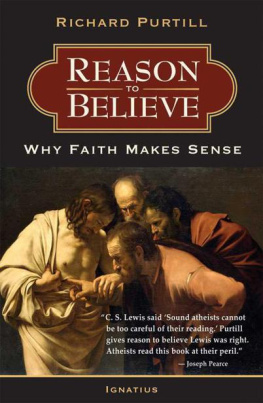
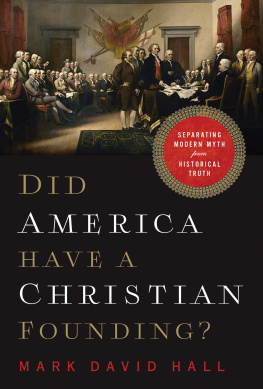
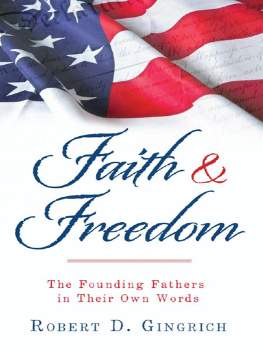
 TM The paper used in this publication meets the minimum requirements of American National Standard for Information Sciences Permanence of Paper for Printed Library Materials, ANSI/NISO Z39.48-1992.
TM The paper used in this publication meets the minimum requirements of American National Standard for Information Sciences Permanence of Paper for Printed Library Materials, ANSI/NISO Z39.48-1992.